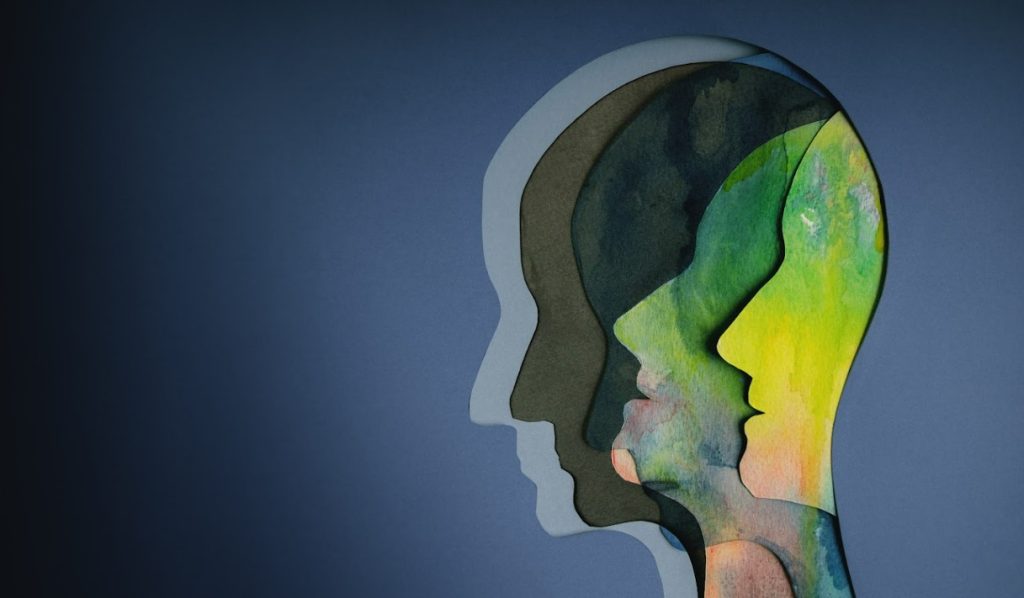An Essential Guide To Maintaining Good Mental Health As You Age

You’ll experience many significant changes in life as you grow older. These may include independence, career transitions, health challenges, grown-up kids leaving home, and retirement. Coping with significant life changes can be challenging at any age. How you manage these changes is often the secret ingredient to aging gracefully.
Meanwhile, most stay healthy even at 70 by creating a balance. Keeping a healthy equilibrium between life’s good and bad parts is the key. Adapting to life changes positively can also lead to healthy aging. You can discover new things to make you happy, stay physically active, and establish meaningful connections with your loved ones.
However, many people are afraid of the aging process. Most of their fears result from false beliefs and misconceptions. This post will guide you to maintaining good mental health as you age. You can visit https://apibhs.com/center-on-aging or other resources to learn more about various services for the senior community.
How To Cope With Change
Stress is a normal part of life. On the other hand, significant changes in your daily routine may trigger it. Too much stress can also lead to mental health problems like anxiety and depression. Hence, knowing how to cope with it is essential.
Here are some tips to help you:
- Express Your Feelings
For most people, expressing feelings is problematic. Some may see it as inappropriate and a sign of weakness, especially for men. However, disregarding your emotional needs can lead to depression, anxiety, resentment, and anger.
No matter how difficult, don’t deny your disappointment, frustration, or despair. Instead, look for healthy ways to deal with your emotions. You may create a journal or talk to a close friend.
- Learn To Accept
Many things in life can be out of your control. Instead of getting stressed over them, learn to accept what you can’t control and focus on what you can handle. Building resiliency is crucial to coping with stress in life. It can help control your feelings and emotions during difficult times.
- Find The Silver Lining
Do you believe in the saying, ‘What doesn’t kill you makes you stronger’? When you encounter severe challenges, try to look at the brighter side. Look for opportunities that will help you grow and develop as you age.
On the other hand, you may consider all the poor choices you made and contemplate them. Learn from your mistakes and see what you can do to improve them.
- Take A Daily Step To Cope With Challenges
What do you do when you encounter significant challenges? Most people would find ways to escape. Meanwhile, ignoring them won’t make your problems disappear. Instead, you allow the situation to worsen.
The best thing you can do is to take one step at a time. It doesn’t matter how small those steps are; even the smallest action can make a difference. It can help boost your self-esteem and remind you that you’re not helpless.

How To Find Meaning In Life
Finding meaning in life is one of the best ways to keep your mind healthy as you age. You’ll face many challenges and experience success and failure. Eventually, you’ll lose things that once gave purpose to your life.
For example, your kids may leave home, your work might change, your loved ones might move to other locations, or you may retire. Don’t make these situations stop you from moving forward. Life can be exciting if you let it flow.
If you don’t know where to start, consider the following recommendations below:
- Try New Hobbies
Experts believe that people who spend time doing what they love are less likely to develop mental health conditions. Consider joining a club or taking a class to pursue what you love and expand your connection. Some hobbies worth exploring are fishing, exercise, painting, journaling, reading, listening to music, and gardening.
- Learn Something New
Constant stress can lead to anxiety or depression. One excellent way to relieve stress is to learn something new. Learning new things can help you ignore stressful scenarios, improving your overall mental health and well-being.
Consider learning a new language, sport, or game to add meaning to your life. Learning new ideas can help maintain optimum brain health, preventing mental deterioration.
- Participate In Your Community
Social interaction can improve your well-being. Hence, participating in your community can positively affect your mental and emotional health. It also gives you a sense of belongingness, adding more purpose and meaning to daily life. So, how can you be a part of a community?
You may attend local events or offer services for free to support a cause that holds a special place in your heart. The purpose and meaning you discover in helping others may expand and enrich your everyday life. Community work is also a fantastic way to utilize your skills and knowledge.
- Travel To Exciting Places
Traveling to new places can improve your mental and emotional well-being. Exploring new sights can give you a sense of calmness. Visiting new sites lets you release stress, allowing your mind to heal and relax.
The thrill of discovery can boost your mental power. Stress can affect your ability to think positively. Taking a trip to an unfamiliar location can spark a sense of appreciation and gratitude. It’s like unlocking a treasure chest filled with awe and wonder.
Discovering new sights can improve your creativity. Exploring the world may influence you to view things differently. It also helps to discover new cultures, make international friends, taste different cuisines, listen to new music, and learn new languages.
- Spend Time In Nature
Spending time in nature allows you to find meaning in life. It also helps relieve stress and mental health issues. For example, ecotherapy—a treatment involving activities in nature—may help improve mild to moderate cases of depression.
Consider a scenic hike, fishing, a ski trip, camping, or walking a dog in the park to spend more time outside the four corners of your home.
How To Stay Connected
Maintaining a support network is one of the challenges of getting older. Illness, retirement, career changes, and moving to different locations can separate you from your family and friends. Hence, staying connected can be challenging as you age. Sometimes, stepping out of your comfort zone may trigger anxiety and potentially lead to panic attacks.
Reaching out to others is essential. Staying social, in addition to regular exercise, may impact your health as you get older. Having people who can support you is a cushion against loss, hardship, depression, and loneliness.
There are plenty of ways to stay connected with other people. Below are some of them:
- Connect Regularly With Loved Ones
Spend time with those who make you feel happy. Schedule lunch with an old friend, shop with family, exercise with neighbors, or play games with grandkids. But what will you do if you’re far from those you care for? You can contact family and friends via frequent emails or phone calls. This way, you can keep your relationship with them as fresh as possible.
On the other hand, a face-to-face conversation with at least one person per day may help reduce the risk of depression and encourage you to stay positive in life.
- Try To Make New Friends
Being alone in life’s journey could be depressing, especially if you lose those you love the most. To avoid being alone, try to make new friends. It could bring joy and a new spark to your social life. You can also connect with younger ones; they can help you view life from a new perspective.
How To Enhance Your Mind
The brain needs some stimulation to reduce the risk of cognitive decline. Hence, staying mentally active is vital. Engage in activities that challenge your brain, such as reading, puzzles, or learning a new skill. It’s like giving your mind a refreshing workout.
Practices like meditation or mindfulness can calm the mind and enhance mental clarity. Remember to stay curious and embrace lifelong learning. There’s always something new to discover, whether exploring new interests or engaging in intellectual pursuits.
Meanwhile, mind games can enhance a range of thinking skills. These include planning skills, decision-making, reaction time, short-term memory, and processing speed. Activities that keep the mind working and engaged can impact brain health positively. Here are some suggestions:
- Reading And Writing
Experts believe that reading can help improve memory, promote sleep, and relieve stress. Pick a book that piques your interest but avoid those that affect your emotions, such as thrillers and melodramas.
On the other hand, writing may help alleviate the symptoms of anxiety and stress. So, grab a journal and write something about what made you happy. Always try to end the day on a positive note.
- Learn A New Language
Learning a new language works out the parts of the brain affected by aging. It helps boost cognitive ability, build confidence, and improve socialization skills. If you’re feeling depressed or anxious, you may turn to your favorite Spanish learning app for some relief.
- Play A Musical Instrument
People with dementia and Alzheimer’s disease may find relief in music. Music could improve memory function and stimulate the brain, especially for senior citizens. Also, it could boost verbal processing speed and fluency in just a couple of months.
Some of the easiest musical instruments to learn include harmonica, guitar, keyboard, ukelele, and drums. Keep in mind that mastering an instrument isn’t necessary. What’s important is you’re having fun doing it!
How To Boost Your Vitality
There’s a common misconception that you’ll stop enjoying life as you age. But that’s just a myth! On the other hand, getting older will make you more vulnerable to illnesses. However, you can boost your vitality by being physically active, eating right, and caring for yourself.
Follow these simple tips to keep your physical and mental health in good condition as you grow older:
- Exercise
Engaging in regular physical activity brings a multitude of benefits that can positively impact your life. Exercise helps improve strength, flexibility, and balance. They’re crucial for maintaining independence and preventing falls. It also promotes cardiovascular health, reducing the risk of heart disease and stroke.
Beyond the physical benefits, exercise boosts mood and mental well-being by releasing endorphins—the ‘feel-good’ hormones. Seniors who exercise often experience reduced symptoms of depression, anxiety, and stress, leading to an overall improved quality of life.
Participating in group exercise activities can foster social connections and combat feelings of isolation. Whether it’s a brisk walk, a gentle yoga session, or any other suitable activity, exercise can uplift and invigorate senior citizens, promoting vitality and happiness in their golden years.
- Eat Well
Feeding your body plenty of good food is essential to keep it healthy. That way, you can stay focused and energetic throughout the day. Meanwhile, it helps to include specific nutrients to keep your brain healthy.
For example, antioxidants may help reduce cellular inflammation, which can lead to neurodegenerative diseases like Alzheimer’s. Aside from antioxidants, it’s best to eat foods rich in omega-3 fatty acids. According to a study, people who consume high amounts of omega-3s experience better blood flow in the brain.
Here are the foods you should eat to promote optimum mental health:
- Oily fish like salmon, tuna, herring, and sardines
- Dark chocolate
- Berries
- Nuts and seeds
- Whole grains like brown rice, barley, oatmeal, and whole-grain pasta
- Coffee
- Avocados
- Eggs
- Broccoli
Ensure to eat these foods in moderation. If you’re allergic to some of them, ask your doctor if there are alternatives you can eat instead.
Final Words
Getting older is a normal part of life. However, there’ll be challenges along the way that could affect your mental health as you age. Keep your mind in good condition as you age, learn how to cope with changes, find meaning in life, stay connected with the people you care for, and live a healthy lifestyle.
Consider contacting a mental health professional for additional guidance on maintaining a vigorous mind. They can provide valuable tips and strategies suitable for your needs. Seek professional support to nurture your mind and maintain overall wellness.
An Essential Guide To Maintaining Good Mental Health As You Age
You’ll experience many significant changes in life as you grow older. These may include independence, career transitions, health challenges, grown-up kids leaving home, and retirement. Coping with significant life changes can be challenging at any age. How you manage these changes is often the secret ingredient to aging gracefully.
Meanwhile, most stay healthy even at 70 by creating a balance. Keeping a healthy equilibrium between life’s good and bad parts is the key. Adapting to life changes positively can also lead to healthy aging. You can discover new things to make you happy, stay physically active, and establish meaningful connections with your loved ones.
However, many people are afraid of the aging process. Most of their fears result from false beliefs and misconceptions. This post will guide you to maintaining good mental health as you age. You can visit https://apibhs.com/center-on-aging or other resources to learn more about various services for the senior community.
How To Cope With Change
Stress is a normal part of life. On the other hand, significant changes in your daily routine may trigger it. Too much stress can also lead to mental health problems like anxiety and depression. Hence, knowing how to cope with it is essential.
Here are some tips to help you:
- Express Your Feelings
For most people, expressing feelings is problematic. Some may see it as inappropriate and a sign of weakness, especially for men. However, disregarding your emotional needs can lead to depression, anxiety, resentment, and anger.
No matter how difficult, don’t deny your disappointment, frustration, or despair. Instead, look for healthy ways to deal with your emotions. You may create a journal or talk to a close friend.
- Learn To Accept
Many things in life can be out of your control. Instead of getting stressed over them, learn to accept what you can’t control and focus on what you can handle. Building resiliency is crucial to coping with stress in life. It can help control your feelings and emotions during difficult times.
- Find The Silver Lining
Do you believe in the saying, ‘What doesn’t kill you makes you stronger’? When you encounter severe challenges, try to look at the brighter side. Look for opportunities that will help you grow and develop as you age.
On the other hand, you may consider all the poor choices you made and contemplate them. Learn from your mistakes and see what you can do to improve them.
- Take A Daily Step To Cope With Challenges
What do you do when you encounter significant challenges? Most people would find ways to escape. Meanwhile, ignoring them won’t make your problems disappear. Instead, you allow the situation to worsen.
The best thing you can do is to take one step at a time. It doesn’t matter how small those steps are; even the smallest action can make a difference. It can help boost your self-esteem and remind you that you’re not helpless.
How To Find Meaning In Life
Finding meaning in life is one of the best ways to keep your mind healthy as you age. You’ll face many challenges and experience success and failure. Eventually, you’ll lose things that once gave purpose to your life.
For example, your kids may leave home, your work might change, your loved ones might move to other locations, or you may retire. Don’t make these situations stop you from moving forward. Life can be exciting if you let it flow.
If you don’t know where to start, consider the following recommendations below:
- Try New Hobbies
Experts believe that people who spend time doing what they love are less likely to develop mental health conditions. Consider joining a club or taking a class to pursue what you love and expand your connection. Some hobbies worth exploring are fishing, exercise, painting, journaling, reading, listening to music, and gardening.
- Learn Something New
Constant stress can lead to anxiety or depression. One excellent way to relieve stress is to learn something new. Learning new things can help you ignore stressful scenarios, improving your overall mental health and well-being.
Consider learning a new language, sport, or game to add meaning to your life. Learning new ideas can help maintain optimum brain health, preventing mental deterioration.
- Participate In Your Community
Social interaction can improve your well-being. Hence, participating in your community can positively affect your mental and emotional health. It also gives you a sense of belongingness, adding more purpose and meaning to daily life. So, how can you be a part of a community?
You may attend local events or offer services for free to support a cause that holds a special place in your heart. The purpose and meaning you discover in helping others may expand and enrich your everyday life. Community work is also a fantastic way to utilize your skills and knowledge.
- Travel To Exciting Places
Traveling to new places can improve your mental and emotional well-being. Exploring new sights can give you a sense of calmness. Visiting new sites lets you release stress, allowing your mind to heal and relax.
The thrill of discovery can boost your mental power. Stress can affect your ability to think positively. Taking a trip to an unfamiliar location can spark a sense of appreciation and gratitude. It’s like unlocking a treasure chest filled with awe and wonder.
Discovering new sights can improve your creativity. Exploring the world may influence you to view things differently. It also helps to discover new cultures, make international friends, taste different cuisines, listen to new music, and learn new languages.
- Spend Time In Nature
Spending time in nature allows you to find meaning in life. It also helps relieve stress and mental health issues. For example, ecotherapy—a treatment involving activities in nature—may help improve mild to moderate cases of depression.
Consider a scenic hike, fishing, a ski trip, camping, or walking a dog in the park to spend more time outside the four corners of your home.
How To Stay Connected
Maintaining a support network is one of the challenges of getting older. Illness, retirement, career changes, and moving to different locations can separate you from your family and friends. Hence, staying connected can be challenging as you age. Sometimes, stepping out of your comfort zone may trigger anxiety and potentially lead to panic attacks.
Reaching out to others is essential. Staying social, in addition to regular exercise, may impact your health as you get older. Having people who can support you is a cushion against loss, hardship, depression, and loneliness.
There are plenty of ways to stay connected with other people. Below are some of them:
- Connect Regularly With Loved Ones
Spend time with those who make you feel happy. Schedule lunch with an old friend, shop with family, exercise with neighbors, or play games with grandkids. But what will you do if you’re far from those you care for? You can contact family and friends via frequent emails or phone calls. This way, you can keep your relationship with them as fresh as possible.
On the other hand, a face-to-face conversation with at least one person per day may help reduce the risk of depression and encourage you to stay positive in life.
- Try To Make New Friends
Being alone in life’s journey could be depressing, especially if you lose those you love the most. To avoid being alone, try to make new friends. It could bring joy and a new spark to your social life. You can also connect with younger ones; they can help you view life from a new perspective.
How To Enhance Your Mind
The brain needs some stimulation to reduce the risk of cognitive decline. Hence, staying mentally active is vital. Engage in activities that challenge your brain, such as reading, puzzles, or learning a new skill. It’s like giving your mind a refreshing workout.
Practices like meditation or mindfulness can calm the mind and enhance mental clarity. Remember to stay curious and embrace lifelong learning. There’s always something new to discover, whether exploring new interests or engaging in intellectual pursuits.
Meanwhile, mind games can enhance a range of thinking skills. These include planning skills, decision-making, reaction time, short-term memory, and processing speed. Activities that keep the mind working and engaged can impact brain health positively. Here are some suggestions:
- Reading And Writing
Experts believe that reading can help improve memory, promote sleep, and relieve stress. Pick a book that piques your interest but avoid those that affect your emotions, such as thrillers and melodramas.
On the other hand, writing may help alleviate the symptoms of anxiety and stress. So, grab a journal and write something about what made you happy. Always try to end the day on a positive note.
- Learn A New Language
Learning a new language works out the parts of the brain affected by aging. It helps boost cognitive ability, build confidence, and improve socialization skills. If you’re feeling depressed or anxious, you may turn to your favorite Spanish learning app for some relief.
- Play A Musical Instrument
People with dementia and Alzheimer’s disease may find relief in music. Music could improve memory function and stimulate the brain, especially for senior citizens. Also, it could boost verbal processing speed and fluency in just a couple of months.
Some of the easiest musical instruments to learn include harmonica, guitar, keyboard, ukelele, and drums. Keep in mind that mastering an instrument isn’t necessary. What’s important is you’re having fun doing it!
How To Boost Your Vitality
There’s a common misconception that you’ll stop enjoying life as you age. But that’s just a myth! On the other hand, getting older will make you more vulnerable to illnesses. However, you can boost your vitality by being physically active, eating right, and caring for yourself.
Follow these simple tips to keep your physical and mental health in good condition as you grow older:
- Exercise
Engaging in regular physical activity brings a multitude of benefits that can positively impact your life. Exercise helps improve strength, flexibility, and balance. They’re crucial for maintaining independence and preventing falls. It also promotes cardiovascular health, reducing the risk of heart disease and stroke.
Beyond the physical benefits, exercise boosts mood and mental well-being by releasing endorphins—the ‘feel-good’ hormones. Seniors who exercise often experience reduced symptoms of depression, anxiety, and stress, leading to an overall improved quality of life.
Participating in group exercise activities can foster social connections and combat feelings of isolation. Whether it’s a brisk walk, a gentle yoga session, or any other suitable activity, exercise can uplift and invigorate senior citizens, promoting vitality and happiness in their golden years.
- Eat Well
Feeding your body plenty of good food is essential to keep it healthy. That way, you can stay focused and energetic throughout the day. Meanwhile, it helps to include specific nutrients to keep your brain healthy.
For example, antioxidants may help reduce cellular inflammation, which can lead to neurodegenerative diseases like Alzheimer’s. Aside from antioxidants, it’s best to eat foods rich in omega-3 fatty acids. According to a study, people who consume high amounts of omega-3s experience better blood flow in the brain.
Here are the foods you should eat to promote optimum mental health:
- Oily fish like salmon, tuna, herring, and sardines
- Dark chocolate
- Berries
- Nuts and seeds
- Whole grains like brown rice, barley, oatmeal, and whole-grain pasta
- Coffee
- Avocados
- Eggs
- Broccoli
Ensure to eat these foods in moderation. If you’re allergic to some of them, ask your doctor if there are alternatives you can eat instead.
Final Words
Getting older is a normal part of life. However, there’ll be challenges along the way that could affect your mental health as you age. Keep your mind in good condition as you age, learn how to cope with changes, find meaning in life, stay connected with the people you care for, and live a healthy lifestyle.
Consider contacting a mental health professional for additional guidance on maintaining a vigorous mind. They can provide valuable tips and strategies suitable for your needs. Seek professional support to nurture your mind and maintain overall wellness.





